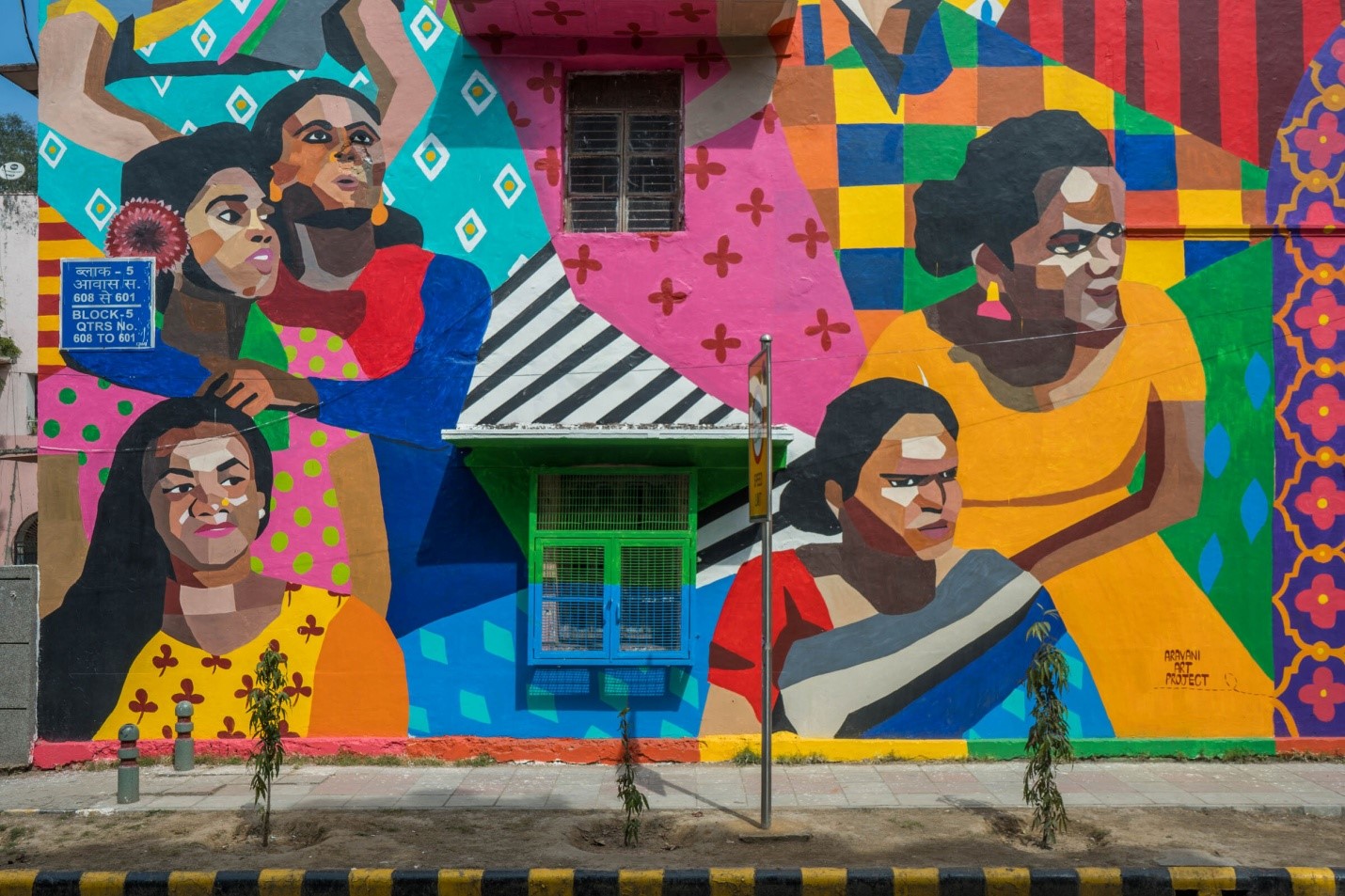In a society where gender identity remains deeply entrenched in traditional norms, the transgender community in India often faces profound marginalization and discrimination. Despite landmark legal rulings recognizing transgender individuals as a third gender, the lived experience for many continues to be fraught with challenges, ranging from societal rejection to economic deprivation. However, amidst this landscape of adversity, a beacon of hope emerges in the form of the Aravani Art Project—an innovative initiative aimed at empowering transgender individuals through the transformative power of art.
A decade ago, India's apex court issued a groundbreaking verdict, acknowledging transgender people as a distinct gender category. While this decision ostensibly signaled progressiveness, the ground reality paints a starkly different picture. Transgender individuals across the country grapple with systemic prejudice and social exclusion, often finding themselves cast out by intolerant families and confronted with discrimination in public spaces, from streets to public transport.
Seeking to address this entrenched history of bias and discrimination, the Aravani Art Project, named after a term used for the transgender community in the southern state of Tamil Nadu, endeavors to foster a connection between transgender individuals and the broader public through the medium of art. Reflecting on the genesis of the project, founder Poornima Sukumar recalls the catalyst—a documentary filmmaker's exploration of the transgender community's plight, which left her disillusioned with society's apathy towards this vibrant segment of humanity. Fuelled by a desire to amplify the voices of transgender individuals, Sukumar launched the Aravani Art Project in 2016, envisioning it as a platform to showcase the resilience and creativity of the transgender community.
Since its inception, the art collective has embarked on a multifaceted journey, creating visually striking public art installations, graphic novels, comics, paintings, and digital projects. Additionally, the project hosts workshops, drama walks, and events aimed at shedding light on the lives and challenges faced by transgender individuals.
For Sukumar and her team, the Aravani Art Project serves as a means to carve out a safe space for transgender individuals within society—a space where they can express themselves freely and challenge prevailing stereotypes. By painting walls in public spaces, the project aims to spark conversations and foster understanding, bridging the gap between transgender and cisgender individuals.
Lead artist Shanthi Muniswamy, reflecting on her journey with the project, underscores the transformative impact of art in reshaping perceptions and instilling a sense of empowerment. For Muniswamy, art has served as a vehicle for personal growth and societal change, enabling her to transcend the confines of societal norms and reclaim her identity as an artist.
Despite the progress made, challenges persist for transgender individuals in India, with access to education and employment remaining elusive for many. However, initiatives like the Aravani Art Project offer a glimmer of hope, providing a platform for marginalized voices to be heard and celebrated. As the project continues to expand its reach and influence, its impact reverberates far beyond the realm of art, signaling a shift in societal attitudes towards greater acceptance and inclusivity. Through collaborative endeavors with brands and public awareness campaigns, the Aravani Art Project is breaking down barriers, one mural at a time, and paving the way for a more equitable and compassionate society.
In the words of Sukumar, "Art is a powerful tool to start a movement and bring about slow change. " As the Aravani Art Project continues to champion the cause of transgender empowerment, it serves as a testament to the transformative power of creativity in effecting meaningful social change.






